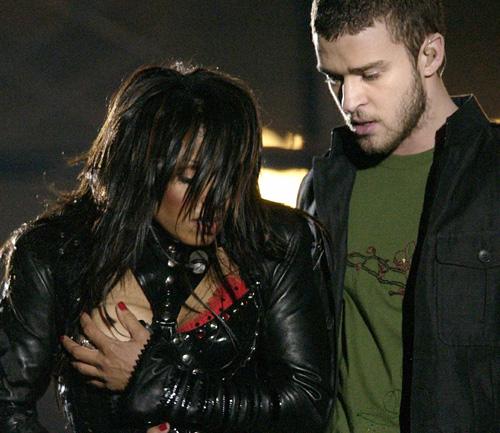Court tosses out FCC’s wardrobe malfunction fine

The Associated Press
Jul 22, 2008
PHILADELPHIA – A federal appeals court on Monday threw out a $550,000 indecency fine against CBS Corp. for the 2004 Super Bowl halftime show that ended with Janet Jackson’s breast-baring “wardrobe malfunction.”
The three-judge panel of the 3rd U.S. Circuit Court of Appeals ruled that the Federal Communications Commission “acted arbitrarily and capriciously” in issuing the fine for the fleeting image of nudity.
The 90 million people watching the Super Bowl, many of them children, heard Justin Timberlake sing, “Gonna have you naked by the end of this song,” as he reached for Jackson’s bustier.
The court found that the FCC deviated from its nearly 30-year practice of fining indecent broadcast programming only when it was so “pervasive as to amount to ‘shock treatment’ for the audience.”
“Like any agency, the FCC may change its policies without judicial second-guessing,” the court said. “But it cannot change a well-established course of action without supplying notice of and a reasoned explanation for its policy departure.”
Get The Daily Illini in your inbox!
The 3rd Circuit judges – Chief Judge Anthony J. Scirica, Judge Marjorie O. Rendell and Judge Julio M. Fuentes – also ruled that the FCC deviated from its long-held approach of applying identical standards to words and images when reviewing complaints of indecency.
“The Commission’s determination that CBS’s broadcast of a nine-sixteenths of one second glimpse of a bare female breast was actionably indecent evidenced the agency’s departure from its prior policy,” the court found. “Its orders constituted the announcement of a policy change – that fleeting images would no longer be excluded from the scope of actionable indecency.”
In a statement Monday, CBS said it hoped the decision “will lead the FCC to return to the policy of restrained indecency enforcement it followed for decades.”
“This is an important win for the entire broadcasting industry because it recognizes that there are rare instances, particularly during live programming, when it may not be possible to block unfortunate fleeting material, despite best efforts,” the network said.
The FCC did not immediately respond to a request for comment.





